One thing we can be sure of is that the Liberal prime minister who once tried to join the Labor party won’t be attending too many Liberal party gatherings in his retirement.
Before he moved too far to the left, even Malcolm Fraser had accepted life membership and had a retirement tilt at the Liberal party presidency. John Howard is still a rock star at party fundraisers, campaigns for key candidates, and chaired a committee recommending reform of the NSW party. Backbencher Tony Abbott dutifully turns up at Liberal state councils and criss-crosses the country to help colleagues and provoke debate. But for Mr Turnbull, there won’t be any on-going role because the party never took to him; and he never saw the party as anything other than a flag of convenience to get him into parliament.
It’s noteworthy that Mr Turnbull’s valedictory remarks thanked staff and some colleagues but there wasn’t a single word of appreciation for the Liberal party volunteers that every MP needs on polling days. Despite the over-the-top eulogies that the new leadership team gave him, and his own ‘I-was-stabbed-in-the-back’ narrative, Mr Turnbull is more likely to be remembered as a lesser John Gorton than as a centre-right Gough Whitlam. The conservative side of politics prefers its heroes to be right-of-centre, like Howard and Robert Menzies; not left-of-centre, like Fraser (as he became) and Gorton, let alone Labor-lite.
The politician who successively stalked Peter King, his predecessor as member for Wentworth, to enter parliament; Brendan Nelson, to become party leader; and Abbott, to seize the prime ministership; and who contrived to sabotage Peter Dutton’s leadership chances by setting the Solicitor-General onto him, is likely to be remembered for back-stabbing on an epic scale rather than policy achievements. Still, along the way, there were a few: his personal income tax cuts and his company tax cuts were important second-order reforms; he maintained Abbott’s successful border protection policies; and he orchestrated Abbott’s proposed SSM plebiscite that facilitated change in a way easier for more traditionally-minded Australians to accept.
As each prime ministership fades from headlines into history, it’s harder and harder to say what distinguished it. From this distance, Menzies’ tenure seems more notable for its length than its policy achievements, although he largely built Canberra, expanded the universities and, on the other side of the ledger, got us into the Vietnam War. Fraser ended the bohemian reformism of the Whitlam interlude, but scaled back those changes rather than initiating much that endures. Like Hawke, Howard was a large-scale economic reformer with the GST, workplace de-regulation, and work-for-the-dole. Abbott abolished Kevin Rudd and Julia Gillard’s carbon and mining taxes, finalised decade-long FTA negotiations, and stopped the boats. In contrast, what may well be recalled from the Turnbull era is a culture of off-the-record character assassination, and of him merely being PM. It’s more likely to be remembered for his Game of Thrones-style backstabbing that’s given the Liberal party an up-close lesson in what to avoid at all costs.
This week Abbott declared that ‘the era of the political assassin is over’. This may have been gilding the lily somewhat as Scott Morrison is said to have encouraged Mr Turnbull to stage the pre-emptive spill that lit the fuse under his leadership. And Dutton was a reluctant challenger who, like Abbott in 2009, actually wanted to change policy. Still, the mood in the parliamentary Liberal party and in its branches seems lighter. At least some members who loathed Turnbull to the point of wanting a Labor government in order to ‘drain the swamp’, seem keen, once more, to sweat blood for their local MP.
It seems likely that the Liberal party will change its leadership rules. Plainly, voters think that the PMs they install should only be removed by them, not by partyroom coups – although they’re likely to give Morrison some latitude given that he wasn’t obviously holding the knife. The victim died by the sword he had lived by.
But, of itself, changing the rules won’t improve the character of current MPs. The toxic egos and all-consuming urge to plot for promotion is more common today in the era of life-long-political staffers-turned MPs than it was in the Hawke-Howard era when more MPs on both sides of the fence had real life experience on the shop floor or in business. It would be paradoxical if the ultimate Turnbull legacy was to mandate to Liberal leaders a loyalty that he never showed to anyone.
By cutting and running from parliament, another Turnbull legacy may be the loss of Wentworth to a pro-green independent. A clear way of averting this catastrophe is for the Libs to select a strong candidate like former ambassador to Israel Dave Sharma. But after Dutton’s defeat it’s likely the Coalition will lose a swag of seats in Queensland, possibly even Dutton’s own. This alone would deliver Bill Shorten the prime ministership on a platter. Thanks for nothing, Malcolm!
Got something to add? Join the discussion and comment below.
Get 10 issues for just $10
Subscribe to The Spectator Australia today for the next 10 magazine issues, plus full online access, for just $10.
You might disagree with half of it, but you’ll enjoy reading all of it. Try your first month for free, then just $2 a week for the remainder of your first year.


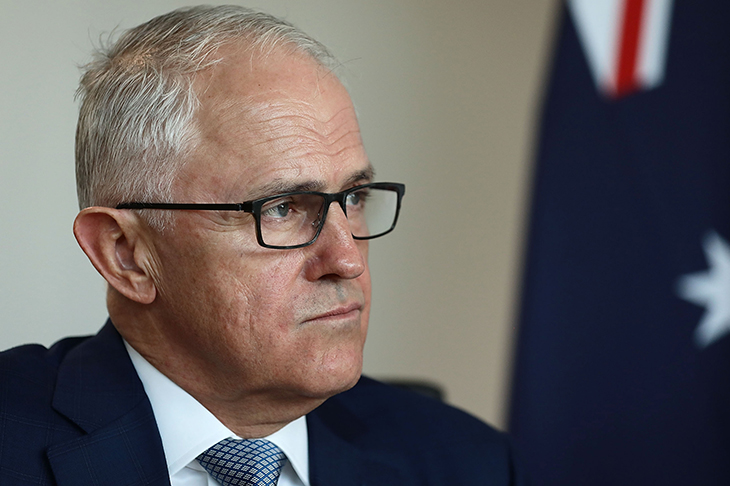
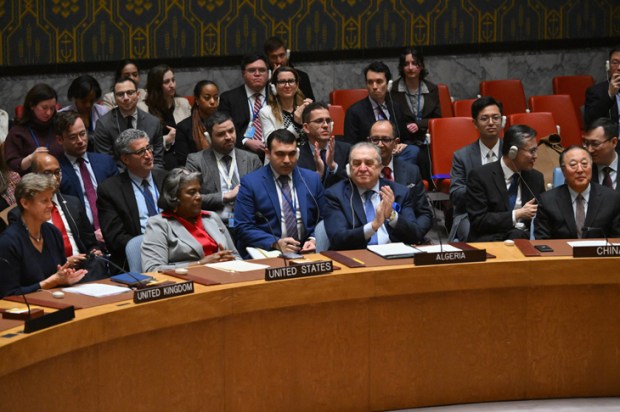
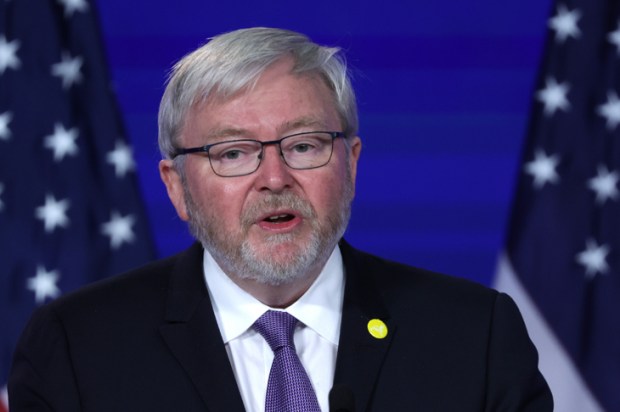
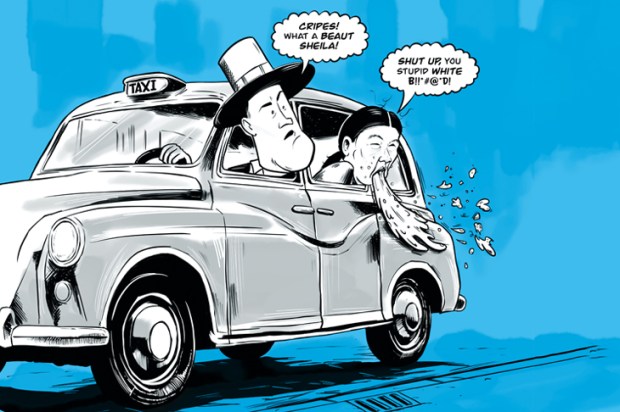
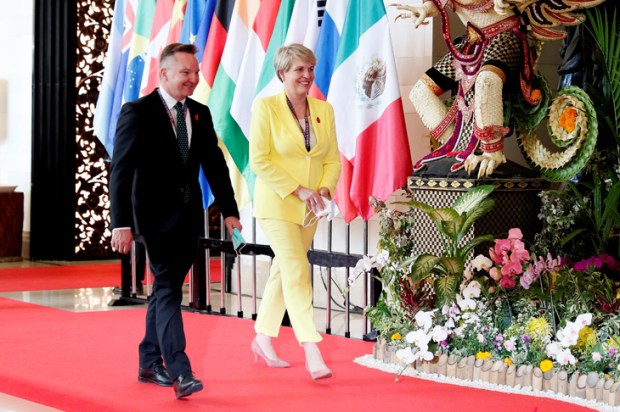
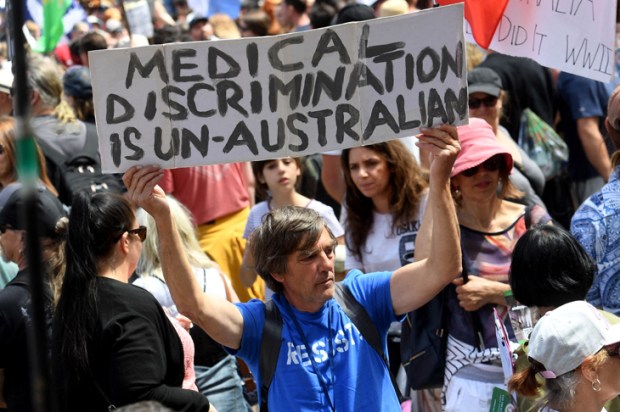







Comments
Don't miss out
Join the conversation with other Spectator Australia readers. Subscribe to leave a comment.
SUBSCRIBEAlready a subscriber? Log in